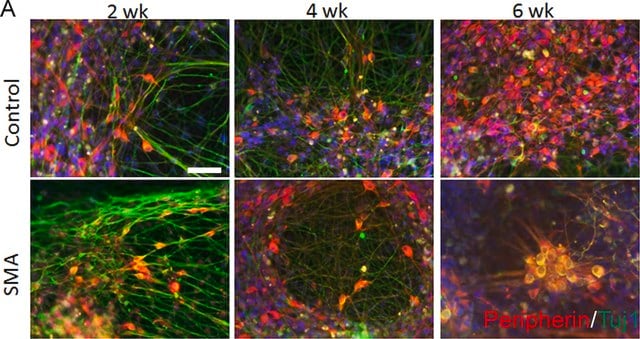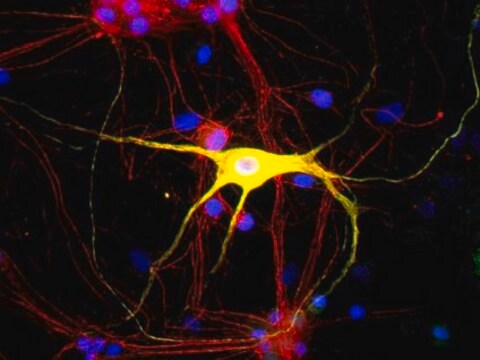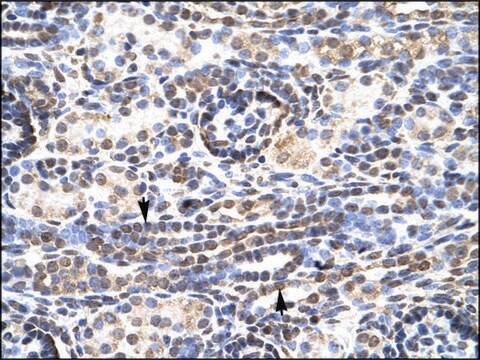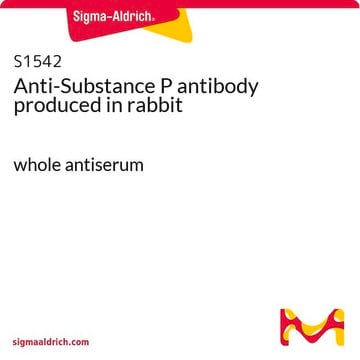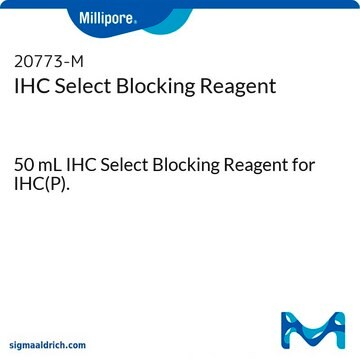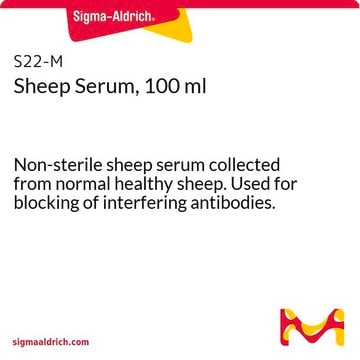Wichtige Dokumente
P0072
Anti-phospho-PDCD4 (pSer67) antibody produced in rabbit
~1 mg/mL, affinity isolated antibody, buffered aqueous solution
Synonym(e):
Anti-Neoplastic transformation inhibitor, Anti-Nuclear antigen H731, Anti-Programmed cell death 4, Anti-Protein 197/15a
Größe auswählen
About This Item
Empfohlene Produkte
Biologische Quelle
rabbit
Konjugat
unconjugated
Antikörperform
affinity isolated antibody
Antikörper-Produkttyp
primary antibodies
Klon
polyclonal
Form
buffered aqueous solution
Mol-Gew.
antigen ~51 kDa
Speziesreaktivität
rat (predicted), mouse (predicted), human
Konzentration
~1 mg/mL
Methode(n)
immunoprecipitation (IP): 5-10 μg using lysates of HEK-293T cells starved for 48 hours and then treated with 20% FCS
western blot: 1-2 μg/mL using lystes of HEK-293T cells starved for 48 hours and then treated with 20% FCS
UniProt-Hinterlegungsnummer
Versandbedingung
dry ice
Lagertemp.
−20°C
Posttranslationale Modifikation Target
phosphorylation (pSer67)
Angaben zum Gen
human ... PDCD4(27250) , SELP(6403)
mouse ... Pdcd4(18569)
Allgemeine Beschreibung
Anwendung
Biochem./physiol. Wirkung
Physikalische Form
Haftungsausschluss
Sie haben nicht das passende Produkt gefunden?
Probieren Sie unser Produkt-Auswahlhilfe. aus.
Ähnliches Produkt
Lagerklassenschlüssel
10 - Combustible liquids
Flammpunkt (°F)
Not applicable
Flammpunkt (°C)
Not applicable
Persönliche Schutzausrüstung
Eyeshields, Gloves, multi-purpose combination respirator cartridge (US)
Hier finden Sie alle aktuellen Versionen:
Analysenzertifikate (COA)
Die passende Version wird nicht angezeigt?
Wenn Sie eine bestimmte Version benötigen, können Sie anhand der Lot- oder Chargennummer nach einem spezifischen Zertifikat suchen.
Besitzen Sie dieses Produkt bereits?
In der Dokumentenbibliothek finden Sie die Dokumentation zu den Produkten, die Sie kürzlich erworben haben.
Aktive Filter
Unser Team von Wissenschaftlern verfügt über Erfahrung in allen Forschungsbereichen einschließlich Life Science, Materialwissenschaften, chemischer Synthese, Chromatographie, Analytik und vielen mehr..
Setzen Sie sich mit dem technischen Dienst in Verbindung.